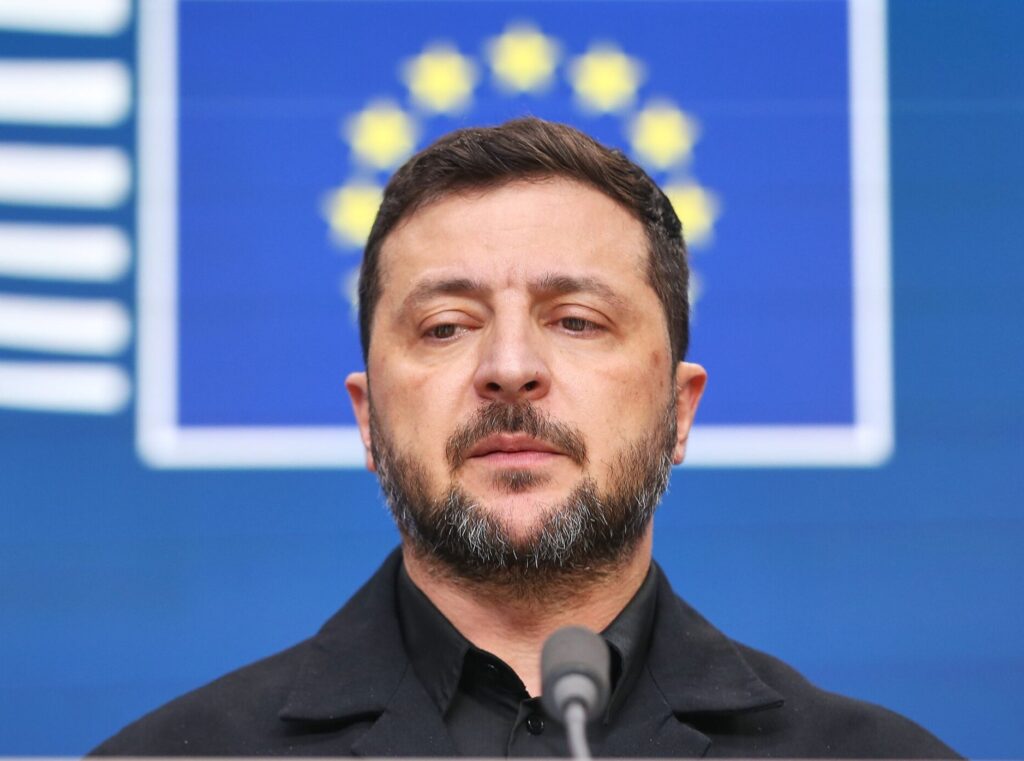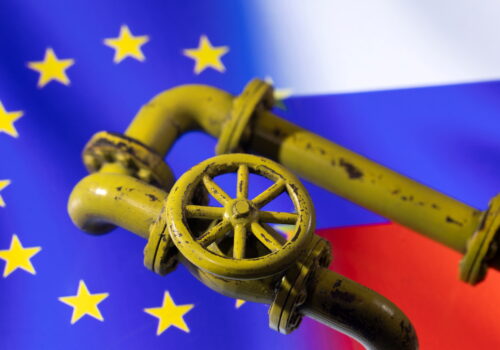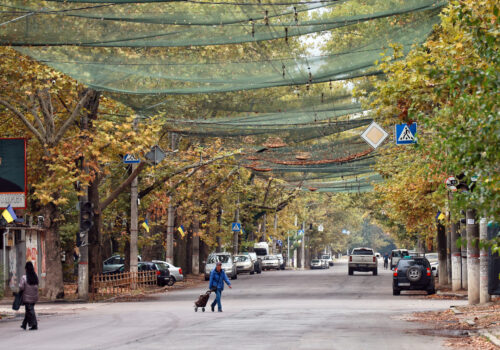Ukraine’s bid to join the European Union received a boost this week with the release of an annual assessment praising the war-torn country’s progress toward future membership. The European Commission’s yearly overview of potential future EU members identified Ukraine as one of the best performers among ten candidate countries, acknowledging advances made by Kyiv in a number of reform areas including public administration, democratic institutions, rule of law, and the rights of national minorities. “Despite Russia’s unrelenting war of aggression, Ukraine remains strongly committed to its EU accession path, having successfully completed the screening process and advanced on key reforms,” the report noted.
Ukrainian President Volodymyr Zelenskyy welcomed this positive appraisal of his country’s efforts and said the European Commission report confirmed that Ukraine “is confidently moving toward EU membership.” It was not all good news for the Ukrainian leader, however. EU officials also raised concerns over Zelenskyy’s domestic policies amid mounting allegations of backsliding in Kyiv on core anti-corruption reforms that are widely regarded as vital for Ukraine’s further European integration. “Recent negative trends, including pressure on the specialized anti-corruption agencies and civil society, must be decisively reversed,” the annual accession review underlined.
Stay updated
As the world watches the Russian invasion of Ukraine unfold, UkraineAlert delivers the best Atlantic Council expert insight and analysis on Ukraine twice a week directly to your inbox.
The criticism currently being leveled at the Ukrainian authorities in Brussels is not entirely unexpected. In July 2025, Zelenskyy stunned Ukraine’s Western allies and sparked domestic outrage by backing a controversial parliamentary bill that was widely interpreted as an attempt to end the independence of the country’s anti-corruption agencies.
The scandal provoked Ukraine’s largest street protests since the onset of Russia’s full-scale invasion, with thousands of Ukrainians braving possible Russian bombardment to rally in cities across the country against Zelenskyy’s apparent power grab. Kyiv’s partners were also quick to voice their alarm and signal that the move could put future international support for the Ukrainian war effort at risk.
Faced with overwhelming opposition at home and anger in key foreign capitals, Zelenskyy quickly backed down and reversed efforts to assert control over Ukraine’s anti-corruption institutions. Nevertheless, this week’s European Commission Enlargement Report has highlighted the lingering damage done by this brief and entirely self-inflicted crisis to the Ukrainian leader’s credibility.
Nor is this the only fly in the ointment. In addition to his headline-grabbing summer 2025 U-turn over Ukraine’s anti-corruption reforms, Zelenskyy is also facing accusations from political opponents and civil society representatives of using lawfare to silence critics and consolidate power in his own hands. This is not a good look for a man who has sought to position himself as one of the leaders of the democratic world.
Zelenskyy has pushed back hard against his critics. He has pointed to Ukraine’s unprecedented success in meeting EU accession targets amid extremely challenging wartime conditions, while underlining the scale of his country’s anti-corruption reforms. “We have implemented the widest, the broadest anti-corruption infrastructure in Europe. I don’t know about any country that has as many anti-corruption authorities,” he commented in response to this week’s report. “We are doing everything possible.”
Eurasia Center events

For the time being, any disquiet over Zelenskyy’s anti-corruption credentials is unlikely to derail Ukraine’s EU membership momentum. While there is no agreement on how soon Ukraine can expect to join, the country’s eventual accession is now viewed in most European capitals as crucial for the continent’s future stability and security.
Ukrainian aspirations to join the EU first began to take shape in the wake of the country’s 2004 Orange Revolution, leading to years of meandering negotiations over a possible Association Agreement between Kyiv and Brussels. When this document was finally ready to be signed in 2013, Russia intervened and pressured the Ukrainian authorities to reject the deal. This led directly to a second Ukrainian revolution and the fall of the country’s pro-Kremlin government.
With Moscow’s efforts to thwart Ukraine’s European integration rapidly unraveling, Russian President Vladimir Putin chose to escalate and launched the invasion of Crimea in February 2014. This watershed moment marked the start of Russian armed aggression against Ukraine. Following the seizure of the Crimean peninsula, Moscow established Kremlin-controlled “separatist republics” in eastern Ukraine’s Donbas region. When this limited Russian military intervention failed to derail Ukraine’s EU ambitions, Putin raised the stakes further with the full-scale invasion of 2022.
As Russian aggression has escalated, Ukrainian public support for EU membership has increased and opposition has withered away. An issue that once divided Ukrainians fairly evenly now unites the nation. This is hardly surprising. For millions of Ukrainians, the quest to join the EU has become synonymous with the country’s civilizational choice of European democracy over Russian autocracy.
Zelenskyy would be well advised to keep this in mind as he seeks to balance domestic political considerations with Ukraine’s EU aspirations and the urgent need to maintain international support for the war effort. Ukrainians have made staggering sacrifices along the road toward EU membership and will not take kindly to anyone who places this progress in jeopardy. Meanwhile, Ukraine’s EU integration currently enjoys strong public and political support across Europe, but backsliding on core values could still undermine Kyiv’s case and provide fuel for Russia as it seeks to discredit Ukraine and prevent the country’s historic exit from the Kremlin orbit.
Peter Dickinson is editor of the Atlantic Council’s UkraineAlert service.
Further reading
The views expressed in UkraineAlert are solely those of the authors and do not necessarily reflect the views of the Atlantic Council, its staff, or its supporters.

The Eurasia Center’s mission is to enhance transatlantic cooperation in promoting stability, democratic values, and prosperity in Eurasia, from Eastern Europe and Turkey in the West to the Caucasus, Russia, and Central Asia in the East.
Follow us on social media
and support our work
Image: ddp/dts Nachrichtenagentur via Reuters Connect




